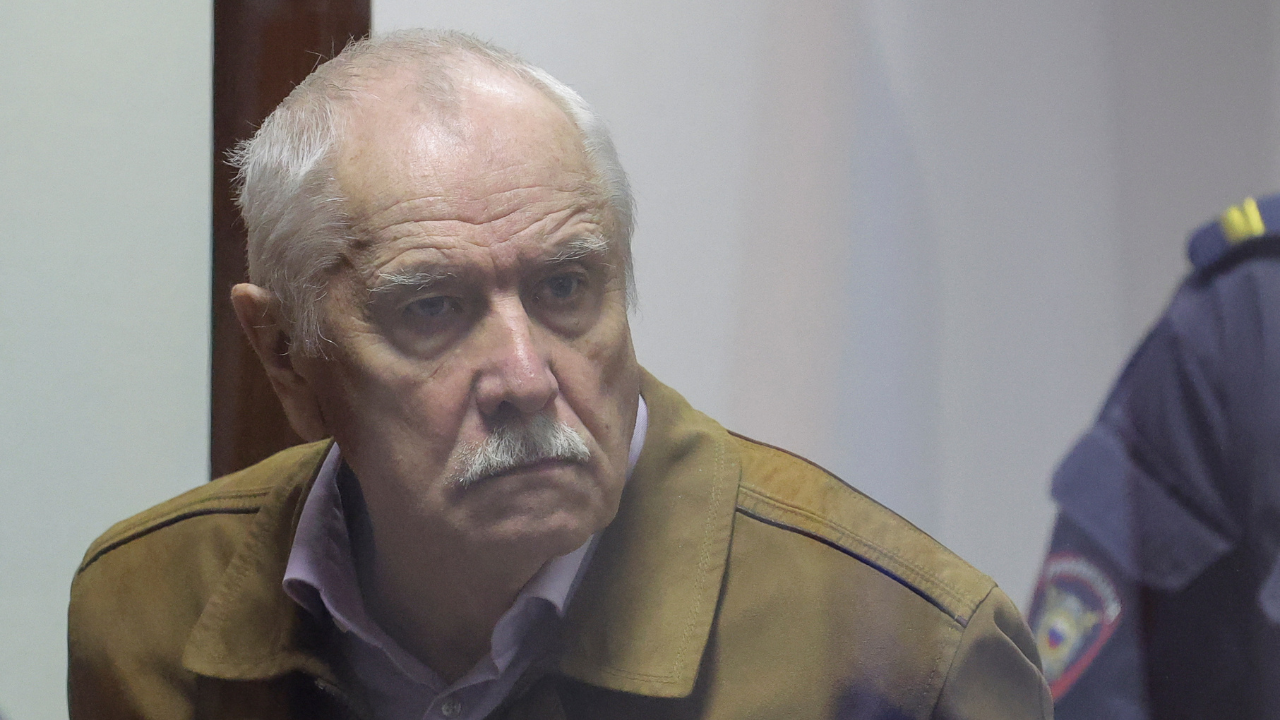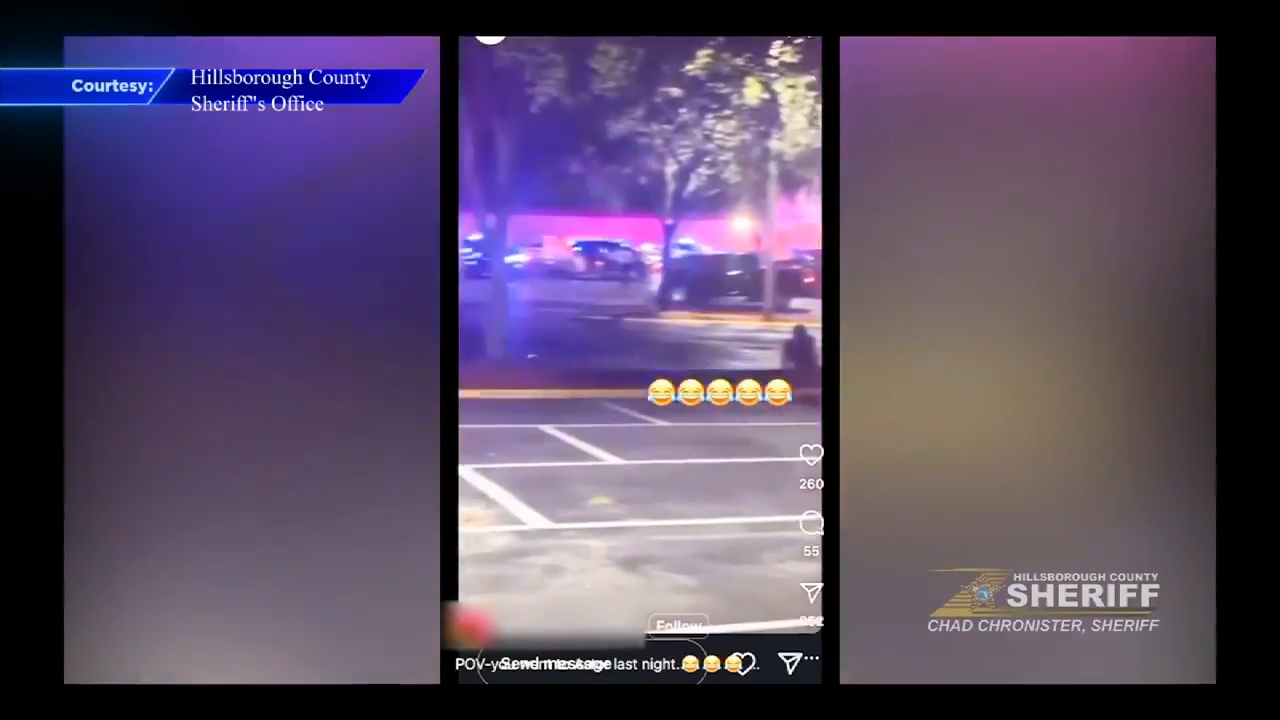Missouri
Missouri college credit bill aims to provide ‘seamless transfer’ in-state – Missourinet

Missouri law allows a block of 42 credit hours to transfer between the state’s public colleges and universities. Rep. Cameron Parker, R-Campbell, is sponsoring a bill that would expand the number of college credits that can transfer in-state to possibly 60 hours.
“By statute, that four-year institution is only required to take the 42 hours,” Parker told Missourinet. “So, what we are seeing is problems with one, parents paying for duplicate classes, which is expensive to the student if they’re paying for it themselves. It’s expensive to the parent if the parent is having to assist. Also, they’re repeating classes.”
Parker is proposing to have Missouri’s Coordinating Board for Higher Education work with the public colleges and universities to increase the block of transferable hours for at least five degree programs.
“You know, we want a seamless transfer,” said Parker. “I mean that’s what we’re trying to do – a transition from a community college to a four-year (college) where you don’t pay extra money. It helps your students; it helps your parents. And I think it’s good for colleges to be able to work together to say, ‘we’ll take your students.’”
The block is for lower-division courses.
“You’re taking 60 anyway with a community college,” said Parker. “That’s your requirement. That’s the magic number to get out of a community college with an AA degree, or an Associate’s degree. We’re trying to make all of those hours transfer over.”
Paul Wagner, executive director of Missouri’s Council on Public Higher Education, said the bill could exclude students outside of popular degree programs. He also he would prefer the bill to be broad because he said getting each college to agree on a 60-credit-hour program would be a big chore.
With the House unanimously passing Parker’s bill, the next order of business is Senate debate.
Fewer than three weeks remain in the Missouri Legislature’s regular session and many bills are waiting on the Senate to make a move.
For more information on House Bill 2310, click here.
Copyright © 2024, Missourinet.

Missouri
Legislative interns help Missouri school districts claim over $1 million in federal funds • Missouri Independent

In March, the phone in state Rep. Deb Lavender’s office in Jefferson City started ringing constantly, but the calls weren’t for her.
They were for her interns, Santino Bono and Alanna Nguyen.
The interns, along with Dylan Powers Cody, who was interning for state Rep. Peter Merideth, had spent months cross-checking spreadsheets to pinpoint school districts who had not yet claimed pandemic-era federal funds for homeless students.
Those federal dollars are part of the American Rescue Plan and must be budgeted by September. A large part of the interns’ project was calling districts to notify them that they had money that could expire if they didn’t act quickly.
The office got so many calls back from schools about the interns’ project that Lavender’s legislative assistant needed to create a voicemail folder just for them.
So far, they helped districts claim $1.15 million in funds in four months that can be used for a range of services for homeless students — from buying washers and dryers to temporary hotel stays and transit cards.
“We had multiple school districts call back and say, ‘We have twenty grand in the bank that we can use to help homeless students? No one really told us,’” Bono said in an interview with The Independent.
Most of the districts the interns reached had no idea they had funding available, Nguyen said.
“Then, they wanted more information on it,” she said. “Once they got the information on it, they were able to kind of kickstart it up and get things moving along.”
Bono expected the internship might be more menial, including the “intern trope of having to get coffee for people,” he said.
“To know that I could have potentially a much bigger impact on actual students, as a student myself, I’m really proud of that,” Bono said.
Missouri received an infusion of $9.6 million in the American Rescue Plan Act of 2021 for students experiencing homelessness, and schools were able to start using it in 2022.
But many of those schools had never received federal dollars to support homeless students before.
Tera Bock, director of homeless education for Missouri’s Department of Elementary and Secondary Education, said the agency alerted school districts to the funding but that several challenges emerged.
“It is not funding that most districts are used to having, so they usually are supporting their students experiencing homelessness without any funding specific to that,” she said. “The extra funding creates the need for a shift in mindset as far as what they provide for those students.”
School districts have until the end of September to budget the remaining $6.1 million or lose out on it.
Most schools received a few thousands dollars in federal aid for homeless students. The largest allocation, based on its homeless student population, went to St. Louis City which received $850,000.
The funding is best used for one-time costs, Bock said, like a vehicle to transport students with housing insecurity or to meet emergency needs.
“The district should really consider how they can use it in a way that is not going to create a financial burden in the future whenever they don’t have the funds anymore,” Bock said.
She said rural districts with a smaller population of students experiencing homelessness are the most likely to struggle to spend the money.
Bock has been in her role for a couple months, and the position was vacant briefly.
Part of her job is to contact each district’s homeless liaison, a position every district is federally required to have. But sometimes, the liaisons have multiple positions in schools, and Bock doesn’t hear back from them.
“Especially in the districts where they don’t typically see a large population of homeless students, they get multiple roles, and it just gets lost in the shuffle,” she said.
“We don’t have very many (districts) here in Missouri where that person is completely designated as their entire job for the most part,” she said. “They are wearing lots of different hats.”
Bock said she sends “lots of communication,” so “they should be aware” of the funds but wonders if liaisons are properly connected to district administration to get the money budgeted.
With more communication and activities planned, Bock is not concerned about being able to get more money claimed by districts.
“This is definitely a big piece of what I’m working on right now,” she said. “And our sights are set on Sept. 30.”
Bock said the interns were “super helpful” in the process.
“There has been good communication whenever they need some backup information to support questions that are coming up,” she said. “So they’ve been great to work with.”
The interns are hopeful schools will continue allocating the funds.
“There’s still a lot to be done by September and session’s ending,” Bono said. “I’m going off to law school. I can’t keep calling school districts. So we’re just hoping that more awareness can be given to school districts to kind of get them to keep working towards this.”
Lavender said the funds might look modest in terms of the state’s overall budget but the impact on students is large. In Webster Groves, she said, the schools “got another $8,000 that I don’t think they knew was sitting there.”
Lavender’s legislative assistant Dustin Bax chimed in: “And $8,000 of backpacks, non-perishable foods, fuel cards — that goes a long way.”
GET THE MORNING HEADLINES DELIVERED TO YOUR INBOX
Missouri
Hearing to determine if Missouri man who has been in prison for 33 years was wrongfully convicted – The Boston Globe

ST. LOUIS (AP) — Christopher Dunn has spent 33 years in prison for a murder he has claimed from the outset that he didn’t commit. A hearing this week will determine if he should go free.
St. Louis prosecutors are now convinced Dunn is telling the truth, but lawyers for the Missouri Attorney General’s Office disagree and will argue for keeping him behind bars. Dunn, 52, is serving a sentence of life without parole at the state prison in Locking, Missouri, but is expected to attend the hearing before Judge Jason Sengheiser that begins Tuesday.
The hearing follows a motion filed in February By St. Louis Circuit Attorney Gabe Gore. A Missouri law adopted in 2021 allows prosecutors to request hearings in cases where they believe there is evidence of a wrongful conviction.
Dunn was convicted of first-degree murder in the death of 15-year-old Ricco Rogers in 1990, based largely on the testimony of two boys who said they witnessed the shooting. The witnesses, ages 12 and 14 at the time, later recanted, claiming they were coerced by police and prosecutors.
In May 2023, then-St. Louis Circuit Attorney Kim Gardner filed a motion to vacate Dunn’s sentence. But Gardner resigned days later, and after his appointment by Gov. Mike Parson, Gore wanted to conduct his own investigation. Gore announced in February that he would seek to overturn the conviction.
Dunn, who is Black, was 18 when Rogers was shot to death on the night of May 18, 1990. No physical evidence linked Dunn to the crime but the two boys told police at the time that they saw Dunn standing in the gangway of the house next door, just minutes before shots rang out.
Rogers and the two boys ran when they heard the shots, but Roger was fatally struck, according to court records.
A judge has heard Dunn’s innocence case before.
At an evidentiary hearing in 2020, Judge William Hickle agreed that a jury would likely find Dunn not guilty based on new evidence. But Hickle declined to exonerate Dunn, citing a 2016 Missouri Supreme Court ruling that only death row inmates — not those like Dunn sentenced to life in prison without the possibility of parole — could make a “freestanding” claim of actual innocence.
The 2021 law has resulted in the the release of two men who both spent decades in prison.
In 2021, Kevin Strickland was freed after more than 40 years behind bars for three killings in Kansas City after a judge ruled that he had been wrongfully convicted in 1979.
Last February, a St. Louis judge overturned the conviction of Lamar Johnson, who spent nearly 28 years in prison for a killing he always said he didn’t commit. At a hearing in December 2022, another man testified that it was he — not Johnson — who joined a second man in the killing. A witness testified that police had “bullied” him into implicating Johnson. And Johnson’s girlfriend at the time had testified that they were together that night.
A hearing date is still pending in another case in which a Missouri murder conviction is being challenged for a man who was nearly executed for the crime.
St. Louis County Prosecuting Attorney Wesley Bell filed a motion in January to vacate the conviction of Marcellus Williams, who narrowly escaped lethal injection seven years ago for the fatal stabbing of Lisha Gayle in 1998. Bell’s motion said three experts have determined that Williams’ DNA was not on the handle of the butcher knife used in the killing.
Missouri
Missouri Gov. sends letter ordering State Legal Expense Fund not to certify payments for sued senators

KANSAS CITY, Mo. (KCTV) – Missouri Gov. Mike Parson sent a letter to the State’s Commission of Administration urging the State Legal Expense Fund (LEF) not to certify payments on behalf of a trio of senators being sued.
Parson sent the letter to Ken Zellers and Missouri Attorney General Andrew Bailey on Monday regarding what he called “potential payments… to cover an adverse judgment against elected officials who falsely accused an American citizen of a heinous act and related it to his immigration status.”
The man who filed a defamation lawsuit is Denton Loudermill, an Olathe man who was accused of being an illegal immigrant and a shooter during the Chiefs’ Super Bowl parade rally shooting in February.
Loudermill applauded Gov. Parson after he defended the Olathe man’s defamation case when Bailey said he would represent the three Missouri Senators. Those three senators are Sens. Rick Brattin of Harrisonville, Denny Hoskins of Warrensburg and Nick Schoer of Defiance.
“I think that he’s doing the right thing by stepping up and letting them know that they’re not supposed to be doing this,” Loudermill, who is also suing Tennessee Rep. Tim Burchett, told KCTV.
READ MORE: ‘He’s doing the right thing’: Loudermill applauds defense from Gov. Mike Parson
Parson’s letter to Zellers continued: “As Commissioner of Administration, you are responsible for certifying payments from the LEF. Under my authority over the Office of Administration… I implore you not to certify any payments from the LEF for ‘payment of any amount required by any final judgment rendered by a court of competent jurisdiction against’ these senators.”
Parson said Missourians shouldn’t have to pay for the attacks senators made on a private citizen.
“Missourians should not be held liable for legal expenses on judgments due to state senators falsely attacking a private citizen on social media,” Parson wrote.
Parson also said it’s his responsibility to spend taxpayer dollars fairly.
“I cannot justify money spent in this way,” he said, noting that Brattin, Hoskins and Schoer voted against authorizing expenditures from the LEF, “highlighting the fact that they also do not financially support the fund that would be responsible for covering their conduct.
“Accordingly, you shall not certify any payments from the LEF in this instance without my approval or a court order.”
Copyright 2024 KCTV. All rights reserved.
-

 News1 week ago
News1 week agoSkeletal remains found almost 40 years ago identified as woman who disappeared in 1968
-

 World1 week ago
World1 week agoIndia Lok Sabha election 2024 Phase 4: Who votes and what’s at stake?
-

 World1 week ago
World1 week agoUkraine’s military chief admits ‘difficult situation’ in Kharkiv region
-

 World1 week ago
World1 week agoCatalans vote in crucial regional election for the separatist movement
-

 Movie Reviews1 week ago
Movie Reviews1 week agoAavesham Movie Review
-

 Politics1 week ago
Politics1 week agoNorth Dakota gov, former presidential candidate Doug Burgum front and center at Trump New Jersey rally
-

 News1 week ago
News1 week agoTrump, Reciting Songs And Praising Cannibals, Draws Yawns And Raises Eyebrows
-

 Movie Reviews1 week ago
Movie Reviews1 week agoUnfrosted Movie Review: A sweet origins film which borders on the saccharine














